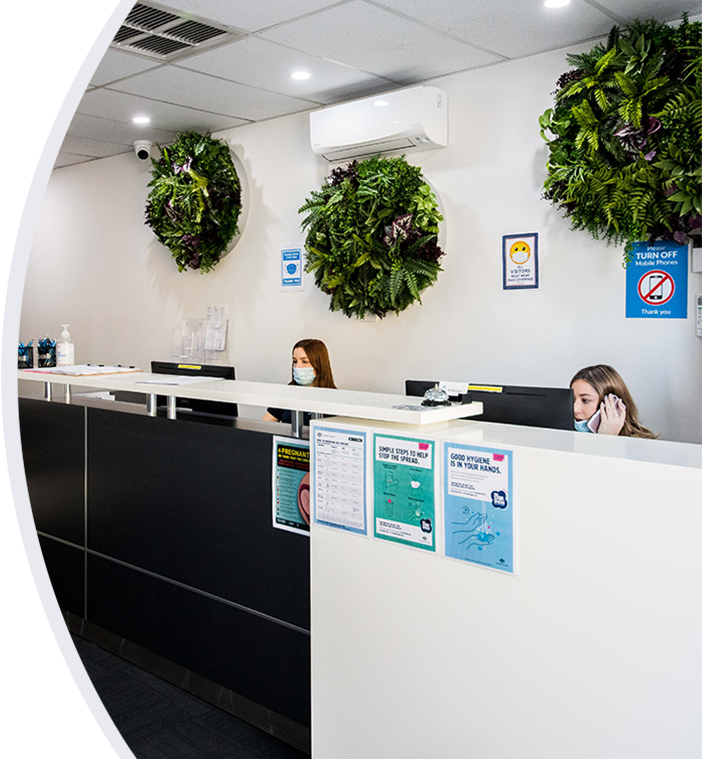Cardiac CT
Vision Radiology offers extensive cardiac imaging to help assess or monitor cardiovascular disease.
What is a CT Coronary Angiogram (CTCA)?
A CT Coronary Angiogram (CTCA) is a test that visualises the cardiac anatomy, coronary circulation and vessels. This provides information about blood vessel abnormalities such as narrowing, blockage and inflammation caused by calcified or noncalcified plaque. If you are experiencing symptoms such as chest pain, breathlessness, excessive sweating, irregular heartbeat or dizziness, your doctor may then refer you for this scan for early detection of heart disease.
Why do I need a CTCA?
A CTCA gives a detailed view of the coronary circulation to identify any abnormalities such as narrowing or complete blockages. Plaques made of cholesterol, fat and calcium can deposit in the linings of arteries and can cause partial or full blockages of vessels. A CTCA can assess the extent of narrowing or blockage in the arteries caused by plaque buildup.
How do I prepare for CTCA?
A CTCA is best achieved when the heart rate is low. To achieve this, you may be given medications (beta blockers) to slow down your heart rate. Before the test, you will be advised to avoid caffeinated drinks or other stimulants before the procedure as it can raise your heart rate. As you will be given a contrast injection, it is advised to fast before the scan. You will need to arrive one hour prior to the appointment to complete a consent form and for further preparation if needed. It is important that you advise Vision Radiology staff if you have asthma, diabetes, kidney problems, irregular heart rhythm or any allergies. If you suffer from any of these, you may not be fit for the test. Occasionally, you may be asked to bring your most recent blood result to check your kidney function. If you have any relevant previous medical records, please bring them on the day.
What happens during a CTCA?
At the time of your arrival, you will be asked to complete a questionnaire, soon after a radiographer will welcome you into the preparation room where you will be asked about your medical history. Once changed into a gown, the staff member will measure your heart rate, blood pressure and saturation levels which will be reviewed by the radiologist. If your heart rate is above 60bpm, you may be given beta blockers (orally) to reduce your heart rate.
A cannula will be then placed into one of your veins through which the contrast is injected.
Four electrode patches will be placed on your chest to measure the electrical activity of the heart via ECG leads which are linked to the CT machine. Approximately 5 minutes before the scan, nitroglycerin will be sprayed under your tongue. This causes the coronary arteries to dilate, allowing us to visualise them more clearly. For some patients this can temporarily cause a mild headache or lightheadedness.
The CT scanner looks like a large doughnut with a hole in the centre, through which a bed moves in and out. You will be asked to lay down on this bed and stay still to ensure the images are clear and diagnostic. You will be given an injection of contrast which is injected quite quickly resulting in a warm sensation throughout the body (especially around the pelvic area) and a metallic taste in the throat. Throughout the scan, you will be asked to hold your breath a few times for up to 15 seconds. The CT scanner will take an ECG recording which helps acquire images of the coronary arteries and makes sure that it is free of any movement.
The scan itself can take 15-20 minutes and soon after the scan is complete, you will be taken back to a recovery room where the radiographer will measure your blood pressure, heart rate and saturation levels. This is again reviewed by the radiologist who will decide when it is best for you to leave the department. Before you leave, the cannula will be removed.
How do I receive my results?
Cardiac CTs are reviewed by both a sub-specialised cardiologist and radiologist. They will report the findings of the scans and send them to your doctor within 10 days. It is very important to follow up with your doctor so that they can explain the results to you.

We offer accessible services by bulk billing almost all examinations and procedures. To find out more, visit our billing information page.
Complete our booking form and one of our friendly staff will contact you – it’s quick, and easy. Click on the below link and follow the simple steps. Remember to have your referral handy.


















